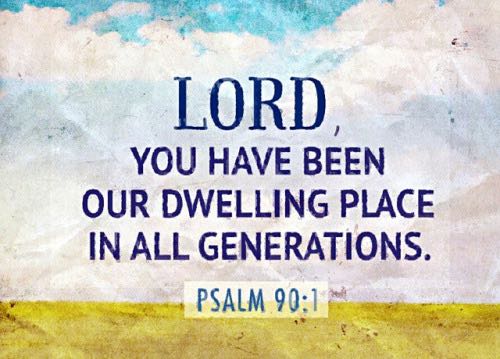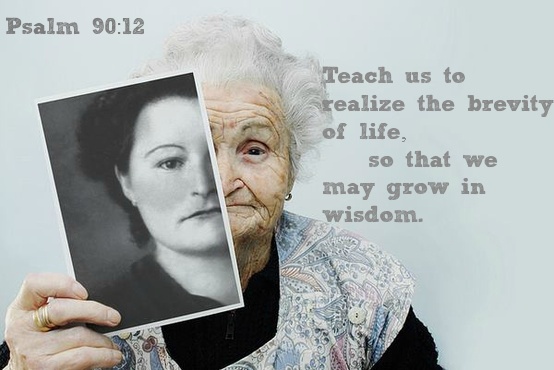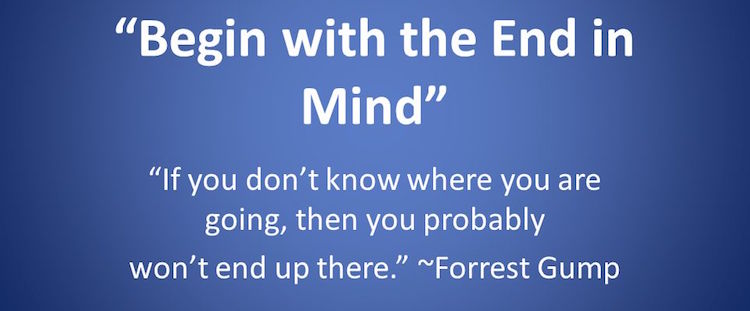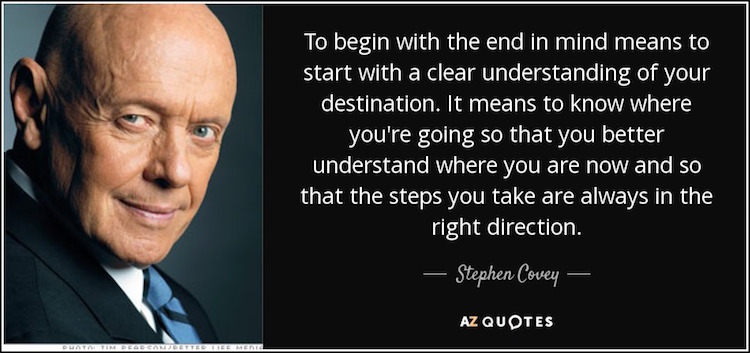This week’s Torah Portion is called “מסעי” – “masei” which means “journeys.” This Hebrew word for “journeys” is found in the first verse of the Torah Portion and this subject of “The Journeys of Israel” dominates the first chapter as well:
These are the journeys of the sons of Israel, by which they came out from the land of Egypt by their armies, under the leadership of Moses and Aaron. Moses recorded their starting places according to their journeys by the command of the LORD, and these are their journeys according to their starting places. – Num. 33:1-2
The journeys of Israel are recorded throughout this chapter beginning with their going out from the city of Ramses in Egypt to their arrival at the plains of Moab, opposite Jericho (Num. 33:49). The forty years of wandering in the desert wilderness were soon to come to an end.
Journeying with God
In the second verse of Numbers 33 we read about the journeys of the Israelites according to “the command of the LORD.” This phrase in Hebrew is “על פי יהוה” – “al pi Adonai,” which is literally translated as, “according to the mouth of the LORD.” God had led the children of Israel under the leadership of Moses and Aaron through the wilderness for forty years but it was literally by “the mouth of the LORD” that God directed the Israelites from place to place. We can also understand how this word for “mouth” can be used in a figurative sense meaning the word or command of the LORD.
The LORD had been with the Israelites from the very beginning leading them out of Egypt and being their guide in the desert. Day and night the LORD was continually watching over and leading Israel:
The LORD was going before them in a pillar of cloud by day to lead them on the way, and in a pillar of fire by night to give them light, that they might travel by day and by night. He did not take away the pillar of cloud by day, nor the pillar of fire by night, from before the people. – Ex. 13:21-22
Moses was God’s human representative to lead the people, but it was literally God Himself who led the Israelites on their journeys by means of a cloud by day and a pillar of fire by night. The LORD was in the midst of the people and He led them from place to place.

The Death of Aaron
We also read about the death of Aaron in Numbers 33. Although many Israelites died along the journey, including Moses’ own sister Miriam, only Aaron’s death is remembered in this record of the journeys.
As we read in this section of Scripture, Aaron’s death occurred on a very specific date in the fortieth year of the journeys of Israel:
Then Aaron the priest went up to Mount Hor at the command of the LORD, and died there in the fortieth year after the sons of Israel had come from the land of Egypt, on the first day in the fifth month. Aaron was one hundred twenty-three years old when he died on Mount Hor. – Num. 33:38-39
Aaron died on the first day of the fifth month, the month of Av. This year the Hebrew month of Av falls on Friday, August 5, 2016. This date is the anniversary of Aaron’s death. This date falls in the middle of “The Three Weeks” of Judaism which remembers the tragedies which have befallen the Jewish people throughout our history with the destruction of the First and Second Temples being the greatest of these tragedies. To read more about “The Three Weeks,” click this link: The Three Weeks
Reflecting on the Journeys
In studying the record of the journeys of Israel in Numbers chapter 33, it seems odd that Aaron’s death is mentioned among the various lodging places of the people of Israel. Why is only Aaron’s death recorded in this account? It is believed that Moses was responsible for writing the Torah, which includes this list of the journeys of Israel and the record of his brother’s death. Why did Moses only record Aaron’s death in this account?
Moses and Aaron led the people from the very beginning of the Exodus from Egypt, all throughout their wilderness journeys, and Moses and Aaron were judged by God at the same time when they failed to believe God before the people to speak to the rock (Num. 13). Aaron died on Mount Hor and God had told Moses that he too would soon be gathered to his people:
Then the LORD said to Moses, “Go up to this mountain of Abarim, and see the land which I have given to the sons of Israel. When you have seen it, you too will be gathered to your people, as Aaron your brother was; for in the wilderness of Zin, during the strife of the congregation, you rebelled against My command to treat Me as holy before their eyes at the water.” (These are the waters of Meribah of Kadesh in the wilderness of Zin.) – Num. 27:12-14
Moses knew that his days were numbered and he must have thought about this when he included the death of Aaron in the record of the journeys of Israel. Moses was more than likely considering his own mortality as he wrote this section of Scripture that we call Numbers 33, as he pondered the past 120 years of his existence.
We cannot say for sure what was going through the mind of Moses at that time, however, we do have a prayer of Moses that is recorded in the book of Psalms which seems to shed some light on this time of his life. Psalm 90 is titled “תפילה למשה איש האלוהים” – “tefilah le’Moshe ish ha’elohim” – “A prayer of Moses, the man of God.” We don’t know exactly when this Psalm was written, however, it seems to fit well into the later days of Moses’ life. I will examine this Psalm in light of Moses remembering his journeys with Israel and his journey with God.

A Prayer of Moses – Psalm 90
Moses lived a very unusual life; born to Hebrew slaves in Egypt, adopted by Pharaoh’s daughter, raised in the palace of Pharaoh, escaped to the land of Midian at age 40, received a call from God to lead the Israelites out of Egypt at the age of 80, spent 40 years wandering the desert with the children of Israel, and was denied entry into the Promised Land before his own death at the age of 120. From a life lived in this reality, Moses began his prayer with these words:
LORD, You have been our dwelling place in all generations. Before the mountains were born or You gave birth to the earth and the world, even from everlasting to everlasting, You are God. – Ps. 90:1-2
Moses began his prayer with a declaration of the Omnipotent, Omnipresent, Creator God who always is and always will be.
In this prayer, Moses did not mention one physical location at which he sojourned during his many journeys of life, instead, Moses declared in the opening words of his prayer, “LORD, You have been our dwelling place in all generations.” Moses learned through his own journey with God that wherever he went, God was with him. There was no place that he could escape from God and the only true resting place was with God alone.
The LORD is Our Dwelling Place
It is important to note that Moses was including the people of Israel in this statement “LORD, You have been our dwelling place in all generations.” Throughout the 40 years of wandering in the desert and the 42 different places that are named in Numbers 33, it was the LORD God Himself who was the real dwelling place of the children of Israel. It was God who led them through the wilderness, gave them water, gave them food, gave them shelter from the sun by day and from the cold at night, protected them from their enemies, and provided for their every need. God alone was their dwelling place in every generation and God alone is our dwelling place today!
During the journey of life, we must never forget to constantly depend on the LORD God. We may have a job that provides a steady income, a home that we have purchased and decorated to our liking, food and drink in plenty, and live in relative safety and security. With all of this, we must never forget that it is God alone who is our eternal source of life and fulfillment. Everything else is temporary. God alone is the source of all that sustains us in life.

The Brevity of Life
Moses saw so much during his years on earth. He saw the slavery of his people during the first 40 years of his life and the stubbornness of his people in the desert during the last 40 years, which led to the death of that whole generation of Israel.
During these years Moses saw so many lives which were taken by slavery and by a rebellious spirit. I believe that it was from this perspective that Moses penned these words in his prayer:
You turn man back into dust and say, “Return, O children of men.” For a thousand years in Your sight are like yesterday when it passes by, or as a watch in the night. – Ps. 90:3-4
Moses was constantly faced with the brevity of life and how quickly life could be taken away. He also understood that from God’s perspective the life span of a man was like the blink of an eye. God is eternal and man is mortal. Moses was reminded of this again and again throughout his life.
The Weight of Sin
Moses spoke of the sin of the nation of Israel and he did not exclude himself. Moses included himself in the sin of his people and spoke of the contrast that sin is to a holy God:
For we have been consumed by Your anger and by Your wrath we have been dismayed. You have placed our iniquities before You, our secret sins in the light of Your presence. For all our days have declined in Your fury; we have finished our years like a sigh. – Ps. 90:7-9
You can almost feel the anguish in the heart of Moses as he wrote these words. Moses wrote about the anger of God because of their sin and how they were consumed in His wrath. Sin brings death and destruction and Moses saw this in the sin of the people again and again.
The combination of sin and the presence of God produce anger and wrath. Moses constantly dealt with the sin of the nation of Israel and was also continually spending time in the presence of God, talking with God and meeting with Him. Moses literally knew the reality of the sentence, “You have placed our iniquities before You, our secret sins in the light of Your presence.”
The phrase “in the light of Your presence” in Hebrew is “למאור פניך” – “li’mor panecha,” which is also translated as “in the light of your face.” Moses knew the light of the face of the LORD as he would meet with Him and speak with Him in an intimate way (Num. 12:6-8). The Bible tells us that Moses was so effected by his intimacy with the LORD that his own face radiated with the presence of God (Ex. 34:29). Moses knew the intimacy of meeting with the LORD and feeling the light of His presence and he also experienced the sorrow and fierce anger of the LORD because of sin in the camp.
Teach Us to Number Our Days
After the sons of Israel, from 20 years old and older, had died in the wilderness, only Moses, Joshua, and Caleb remained among the people as men over the age of 60 years old (Num. 26:63-65). All the rest of the Israelites had died in the desert because of their unbelief and only their children remained.
Moses fully understood the consequences for decisions along the journey of life and the brevity of life itself, which led to his prayerful request for guidance and wisdom for himself and the people:
As for the days of our life, they contain seventy years, or if due to strength, eighty years, yet their pride is but labor and sorrow; for soon it is gone and we fly away. Who understands the power of Your anger and Your fury, according to the fear that is due You? So teach us to number our days, that we may present to You a heart of wisdom. – Ps. 90:10-12
Moses knew and understood that with all of the trouble and sorrow that this life offers, the only real hope is to walk this journey of life in the counsel and wisdom of the LORD.

We read Moses’ first request in his prayer when he asked God to teach them to number their days. Moses knew that each person’s days were numbered and that life itself came from God and is dependent on God. Who else is there to ask for guidance in life than the Author of life Himself?
As Moses concluded his prayer, he continued to make requests of God:
Do return, O LORD; how long will it be? And be sorry for Your servants. O satisfy us in the morning with Your lovingkindness, that we may sing for joy and be glad all our days. Make us glad according to the days You have afflicted us, and the years we have seen evil. Let Your work appear to Your servants and Your majesty to their children. Let the favor of the Lord our God be upon us; and confirm for us the work of our hands; yes, confirm the work of our hands. – Ps. 90:14-17
Moses asked God to return and posed the question, “how long will it be?” It is difficult to understand this question exactly but it seems that Moses is asking how long until God returns with favor on His people. To know the favor of God in one’s life, in the lives of one’s loved ones, and in one’s community is one of the greatest desires of the heart of the believer in God.
The Source of Our Joy
Moses also requested that God would satisfy His people in the morning with His lovingkindness. Moses knew that the ultimate joy and satisfaction in this world is not the things of this world but in God’s lovingkindness alone. Nothing else and no-one else can satisfy like the LORD Himself. God alone is our wellspring of joy and gladness.
The Pleasantness of the Lord
In the last verse of this psalm, Moses asked God to let his favor be upon them. This phrase in Hebrew is “ויהי נועם אדוני אלוהינו עלינו” – “vihi noam Adonai elohenu aleinu,” and is literally translated, “May the pleasantness of the Lord our God be upon us.” Moses had seen many miracles of God as well as the wrath of God. He was now asking to experience the “pleasantness of the Lord” in his own life and upon the people of Israel.

Confirmation of Our Works
As Moses concluded his prayer, he made one final request of the LORD: “…and confirm for us the work of our hands; yes, confirm the work of our hands.” Moses was more than likely toward the end of his years on earth and he wanted to know that his life was not in vain. He wanted to know that the work of his hands and of the nation of Israel would be established and that there would be a fruitful outcome.
Moses repeated his final request twice and I believe we see his heart’s desire to want to know that he had not lived his life in vain. God had called Moses to a certain task and he had seen much victory and defeat along the journey of life. When his life would come to an end he wanted to know that it was worth it all, that he had not toiled in vain, and that God would establish the work of his hands, which included bringing the people into the Promised Land. He was not only praying for himself but he was asking God to establish the work of his hands and of the whole nation of Israel.
What are the works of your hands?
What is the focus of your life’s work?
How are you investing your time and your energy?
Can you confidently ask God to confirm the work of your hands?
Begin with the End in Mind
It is to our benefit to consider the questions above while continuously refining our time and energy along the journey of life. One of the key principles that I personally glean from Psalm 90, the prayer of Moses, is the principle of “Begin with the end in mind.” Life is short and we all have so many days, months, and years on this earth. We should make it our priority to live our lives for the glory of God and to invest in the lives of others.

Each one of us are unique individuals, created in God’s image, and gifted in certain ways in order to fulfill the works that God has for us on this earth (Eph. 2:10). It would behoove us to request from the LORD the request of Moses, “So teach us to number our days, that we may present to You a heart of wisdom.” (Ps. 90:12) Let us begin with the end in mind and make the most of our lives in view of God’s wisdom and direction.
Shabbat Shalom!
If you enjoyed reading this article, share it today with friends! We also invite you to sign up for our weekly Torah Portion commentary on the sidebar to the right.
Help keep our weekly commentaries free and available to all. Click here to donate today:
Torah Portion: Num. 33:1 – Num. 36:13
Haftara: Jeremiah 2:4-28. Jeremiah 3:4. Jeremiah 4:1-2
Return to Torah Portion Homepage
Copyright Jewels of Judaism. All rights reserved 2016


